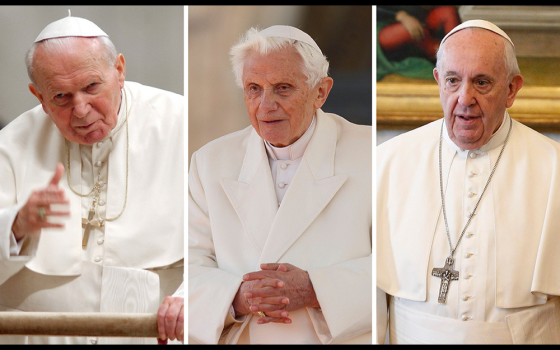This morning’s newspaper carried news of two deaths: Vaclav Havel and Kim John Il. The two men stood at polar opposites of the long chain of political engagement, and stood there firmly. To note only one example, Havel endured prison for his commitment to freedom and Kim Jong Il was the great incarcerator. Kim Jong Il’s death makes one feel as if this morning’s news contained news of a cure for cancer, the sensation that a great scourge has been lifted. Havel’s death fills one with a sense of enormous and specific loss, for his contribution to the cause of human dignity has improved the lives of millions.
It is impossible to confine a man with as rich and varied a life as Havel to a single proposition, but if one had to write a single sentence to encapsulate what he stood for that sentence would be this: Havel stood for the proposition that politics without morality is slavery. Havel’s many writings, his public dissent, and, finally, his political career, all gave breath and insight to something that has been a central theme of the pontificate of Pope Benedict XVI: freedom, true freedom, cannot exist without truth especially moral truth. A young Father Ratzinger was a peritus at Vatican II when Havel wrote his play, “The Memorandum,” in which the government mandates a new “scientific” language, called Ptydepe, but no one understands it.
The play, and Havel’s subsequent writings, focused on the ability of power to corrupt and manipulate even that which is good. It takes science and distorts it to serve its own ends. It takes the goods of the earth and denies them to many while bestowing great wealth on the few. It controls information and ideas, or seeks to, in such a way that people come to speak lies with ease and to do so unknowingly. “We have become morally ill because we are used to saying one thing and thinking another. We have learned not to believe in anything, not to care about each other….Love, friendship, mercy, humility, or forgiveness have lost their depths and dimension…They represent some sort of psychological curiosity, or they appear as long-lost wanderers from faraway times,” he said after the fall of communism in his native Czechoslovakia. Could those words not be applied to virtually any political power?
It is a commonplace in certain conservative circles to think that Ronald Reagan and Pope John Paul II were the chief protagonists in the collapse of communism. Both men deserve a great deal of credit for helping to kick the last, hollow leg out from under what had become a corpse, standing only by its own inertia. They were protagonists in the drama to be sure, but there were many others and it was Havel who wrote the script.
It is also a commonplace, especially in America, to deride intellectuals and their contributions to society. Sometimes, the derision is earned and I know more than a few intellectuals who would object to Havel’s insistence on the necessary connection between morality and politics. But, Havel showed, too, that ideas matter, that intellectuals must stand watch not only over their craft but over their society, that they must resist the perks of power that may be flung their way, usually in an effort to co-opt them.
The New Republic has an essay by Jacques Rupnick today that captures some of the greatness and all of the uniqueness of Havel. I commend a careful reading of Rupnick’s words – and of Havel’s.
On the other side of the globe, a man who embodied all the evils against which Havel stood has gone to his eternal reward. Ours is a merciful God and, with von Balthasar, I insist on hoping that hell is empty. But, I wonder what God will say to Kim Jong Il when he greats him at the pearly gates. This is a man who intentionally starved his own people to keep them subjected to his iron rule. Hundreds of thousands of people died, and for what? So that Kim Jong Il could mount his propaganda shows in which thousands of unfree men and women clap in unison, or wave flags, or otherwise put on the kinds of displays we associate with Nuremberg in the ‘30’s. Those displays of devotion to the “Dear Leader” would be comic if it was not for the fact that they were lies and consequential lies.
For Kim Jong Il, there was no morality, only power. He did not want to improve the daily lives of his subjects for fear that they might rebel against his tyranny. For him and his father’s filthy regime, it was better to squander his nation’s resources acquiring a nuclear weapon than to feed his own people. What Havel denounced in Czechoslovakia as “the permanent humiliation of their human dignity” was the modus operandi in North Korea. Lies, all lies, and violence and misery.
Havel and his fellow dissidents at Charter 77 were heroes. Kim Jong Il is the quintessential anti-hero. The one had ideas and a commitment to truth. The other had naked power. Happy is the man who has not suffered what Havel suffered for his beliefs. But, happier still is the man who endures that suffering and lives to see at least many of the lies against which he fought cast upon the ash heap of history. Kim Jong Il’s lies will end up on that ash heap one day too and my prayer for the people of North Korea is that someone in that tragic country, a disciple of Havel’s is setting pen to paper. Kim Jong Il may have subjected his fellow citizens to great horrors by means of raw, naked power, but Havel subjected such raw, naked power to something yet more powerful, an idea, and his idea was that human beings possessed dignity. That should be our idea too.


